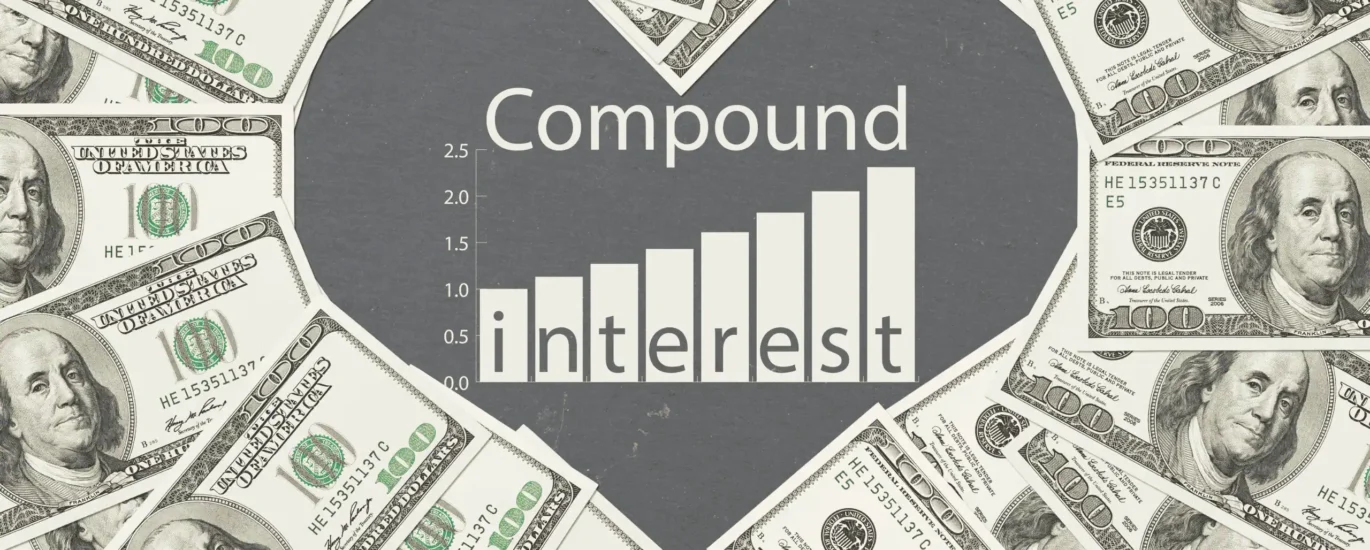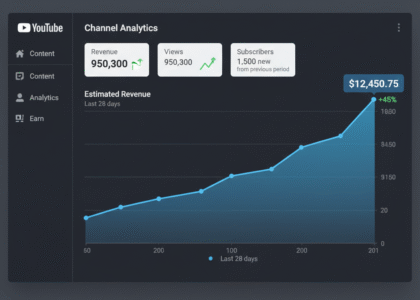Introduction:Compound Interest Explained
Ever wondered how your savings can grow exponentially over time? The secret lies in compound interest—a powerful financial principle that can significantly boost your wealth. Understanding how compound interests works can help you maximize your investments, build savings, and achieve long-term financial security. In this guide, we’ll break down compound interests, its benefits, and how you can use it to your advantage.
What is Compound Interests?

Explained Compound interests is the process of earning interest on both the initial principal and the accumulated interest from previous periods. Unlike simple interest, which only applies to the original amount, compound interests grows your money faster by reinvesting earnings over time.
The Formula for Compound Interest:
Where:
- A = Final amount
- P = Principal (initial deposit)
- r = Annual interest rate (in decimal)
- n = Number of times interest is compounded per year
- t = Number of years
Example:
If you invest $1,000 at an annual interest rate of 5%, compounded annually for 10 years, your final amount would be:
That’s an extra $628.89 earned through compound interest!
Key Benefits of Compound Interests: Compound Interest Explained

1. Accelerated Wealth Growth
The longer your money is invested, the more it grows due to compounding. Starting early can exponentially increase your wealth.
2. Passive Income Generation: Compound Interest Explained
By reinvesting your interest earnings, you create a passive income stream without additional effort.
3. Retirement Savings Boost: Compound Interest Explained
Investing in retirement accounts like 401(k)s and IRAs early allows compounding to work in your favor, ensuring a comfortable retirement.
4. Beats Inflation:Compound Interest Explained
Money left in a standard savings account loses value over time due to inflation. Compound interests investments help counteract this.
5. Encourages Long-Term Investing
The power of compounding rewards patience, making it ideal for long-term investment strategies like mutual funds and stocks.
Best Ways to Maximize Compound Interests
1. Start Investing Early
Time is the most crucial factor in compounding. Even small contributions made early can lead to significant returns over time.
2. Choose High-Interest Accounts
Opt for high-yield savings accounts, certificates of deposit (CDs), and investment accounts that offer compound interests.
3. Increase Contributions Over Time
Adding more to your investments regularly amplifies the effect of compounding.
4. Reinvest Dividends and Earnings
Instead of withdrawing interest payments, reinvest them to generate even more interest.
5. Avoid Early Withdrawals
Withdrawing funds before they fully mature disrupts compounding and reduces potential earnings.
Common Mistakes to Avoid
- Delaying Investments: The earlier you start, the more time your money has to grow.
- Choosing Simple Interest Accounts: Ensure your savings and investments earn compound interest.
- Ignoring Fees and Taxes: High fees can eat into your earnings, so choose low-cost investment options.
- Not Reviewing Investment Growth: Regularly track your investments to make necessary adjustments.
FAQs
1. What’s the difference between simple and compound interests? Simple interest is calculated only on the initial principal, while compound interests includes accumulated interest over time.
2. How often does interest compound? It varies by account type—common compounding periods are daily, monthly, quarterly, or annually.
3. What investments benefit from compound interests? Savings accounts, certificates of deposit (CDs), bonds, retirement accounts, and dividend stocks all utilize compound interests.
4. Can I lose money with compound interests? If your investment is in a volatile market, losses can occur, but long-term investments typically benefit from compounding growth.
5. Is compound interests good for debt? Not always—compound interests on loans and credit cards increases debt, making it crucial to pay off balances quickly.
Conclusion
Understanding compound interests is essential for anyone looking to grow their wealth over time. By investing early, reinvesting earnings, and choosing the right accounts, you can take full advantage of this powerful financial tool.
Want more personal finance tips? Visit GetCashVibe for expert insights!






